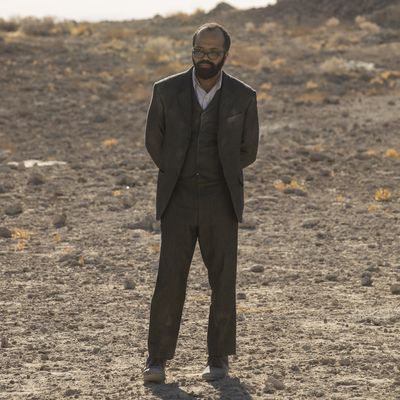
Now that the second season of Westworld has ended in a flurry of gunshots and philosophical mayhem, where could the hit HBO show go next? Season two definitely fulfilled some of the things we wanted after the first, including a few peeks at the “real” world and a more deft approach to some of the show’s biggest twists. (If you predicted that Dolores was really hiding within a host version of Charlotte’s body, then you should go play the lottery because you’re basically a psychic.) But it was also a season that frustrated viewers at times with an overload of dense philosophy and nonstop plotting, so it’s not without its flaws. Let’s start there, shall we?
It’s okay to slow down
Season two often felt like a race, cramming in as much narrative as possible across a dozen subplots in different time frames as it hurtled toward the season finale. It’s telling that two of the most widely beloved episodes of the season — “The Riddle of the Sphinx” and “Akane No Mai” — were also its most deliberate and focused chapters. The former focused almost entirely on William, allowing the most character development for him we’ve seen in the series, and the latter was a shogun adventure with Maeve that pushed Westworld into different territory. The show can be overwhelming in its desperate need to get places, but it’s often at its best when it takes its time. Character-specific episodes in season three would be a good way to go, breaking the story up into the kind of focused, rich installments that paid off so well this year.
Have some (more) fun with it
We hoped for this at the end of last season, too, and it feels even more necessary after this violent, brutal finale. Sure, the intensity can be heart-pumping, but the show works even better when it balances that with a bit of escapism and humor. The dark wit of Maeve is one of the reasons so many people love her character. And remember when Teddy was a wide-eyed cowboy and not a dead-eyed killing machine? Yes, Westworld has been a violent show since the beginning, but the nonstop carnage was a bit of a turnoff this year, and that’s in part because there wasn’t enough presented to counter that tone. It helps the deep stuff too: Viewers are more likely to go along with the long-winded monologues about humanity if they also get a break from the intensity — either physical or philosophical — every once in a while.
Give us a reliable narrator
The Westworld writers have had their fun blurring the line between host and human, making us unsure who’s dead or alive, and keeping us as confused as possible. But on the downside, that has led to a story in which no detail can really be trusted. We need a character or two who can ground the narrative of the show in something relatable. Of course, elements of that need are fulfilled in Bernard and Dolores, but in season three, perhaps it’s time for those two characters to become consistent and reliable narrators. Make the world around them as chaotic as you want, Westworld! But let us see the inconsistency and the chaos through their eyes. In season two, it sometimes felt like the show had no point of view. And if there’s nothing to hold on to in terms of character, the philosophy of the show quite simply can’t have the same impact.
Don’t forget about the fan favorites
Although it’s often a cheat for a show to bring back dead characters, it might be a smart move for Westworld. As we learned in the closing scenes of “The Passenger,” death is effectively impermanent in this world. Bernard, Charlotte, and Dolores were all shot to death in that episode, and yet there they are, alive and kicking in Arnold’s house. Sure, some of the characters who died in the Infinity War–esque carnage of the finale might stay dead (Elsie and Lee have probably run their course), but it would be disappointing if Teddy’s final appearance is him standing in the Valley Beyond. While Maeve’s final sacrifice to save her daughter feels like a possible closing moment for her arc, it’s hard to imagine Westworld without Thandie Newton. Plus, Felix and Sylvester are tasked with seeing if they can “salvage” her in the final scenes of the season. Wanna bet they can?
Don’t overdo the time jumps
It’s been fun to question when certain scenes take place, but this narrative trick will get annoying soon enough (and already has for some viewers this year). By all means, keep employing flashbacks — memories are an essential part of the fabric of this show — but it wouldn’t be a crime to make it clear when a flashback is unfolding. By jumping around chronologically with reckless abandon, the stakes were lower this season than they may have otherwise been, since the story often felt more confusing than it did engaging. This is the kind of narrative device that has more power when it’s used sparingly, so ease up on the nonchronological mayhem, lest viewers decide they can’t trust anything they’re seeing.
Do it soon!
The TV market is so overloaded that a long break between seasons can sometimes kill a show’s momentum. Westworld has a ton of cultural relevance and will likely pick up a bunch of Emmy nominations this summer, but a lot can happen to a show’s reputation while it’s off the air, as literally hundreds of other programs premiere. Keep this train moving, HBO! There’s something special about the way fans talk about and dissect Westworld that’s increasingly rare in modern television, where so much feels immediately disposable. Westworld is already a tricky show to follow from episode to episode, so the longer the break, the more likely that viewers won’t remember all the major details. By next summer, let’s hope we’re debating new theories and questions about season three.


